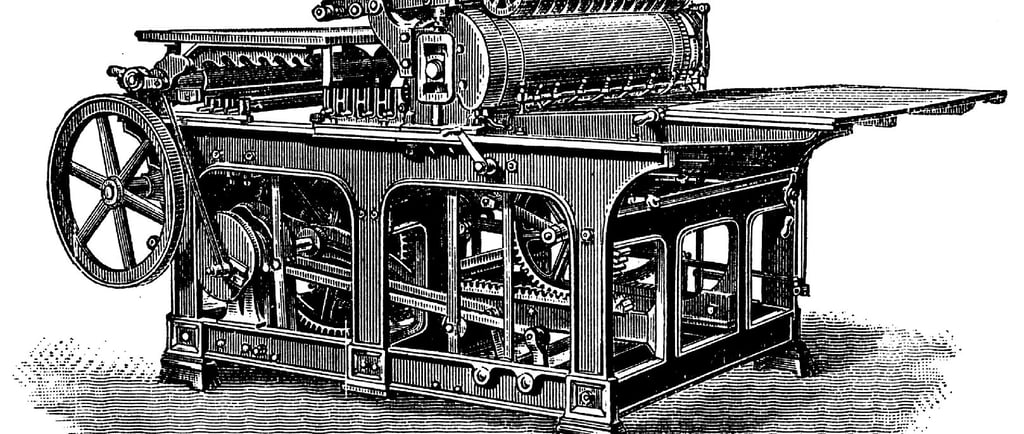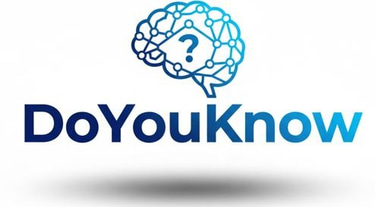Do You Know How Printing Changed the World
Printing is one of humanity’s greatest inventions. It transformed communication, spread knowledge, and laid the foundation for today’s modern world. This article explores how printing changed history, education, religion, science, and even politics.
KNOWLEDGE & EDUCATION
Do You Know Team
7/20/20253 min read


Imagine a world without books, newspapers, or the internet. Before printing was invented, every book or manuscript had to be copied by hand, a slow and expensive process available only to the elite. Knowledge was restricted, and most people lived without access to education or written records. The invention of the printing press in the mid-15th century by Johannes Gutenberg revolutionized the way humans shared ideas. Printing not only spread information quickly but also empowered ordinary people, reshaped societies, and laid the groundwork for revolutions in religion, science, politics, and culture.
Let’s explore how printing changed the world forever.
1. It Made Knowledge Accessible to Everyone
Before printing, books were rare treasures. Only the wealthy or religious institutions could afford them.
Gutenberg’s press made it possible to produce multiple copies quickly and cheaply.
Suddenly, knowledge was no longer restricted to elites—ordinary people could learn, read, and grow.
Printing became the bridge between wisdom and the masses.
2. It Sparked an Educational Revolution
With books more available, schools and universities expanded rapidly.
Literacy rates across Europe and later the world began to rise.
Textbooks standardized learning, ensuring that students across regions learned the same knowledge.
Education shifted from privilege to possibility for millions.
3. It Fueled Scientific Progress
Scientists could now share their discoveries widely and accurately.
Ideas spread faster, allowing others to test, improve, or challenge them.
Landmark works—like Copernicus’s On the Revolutions of the Celestial Spheres or Newton’s Principia Mathematica—were printed and distributed, changing how we understand the universe.
Printing transformed science into a collaborative, global pursuit.
4. It Transformed Religion
The Bible was the first major book printed, making religious texts accessible to ordinary believers.
This led to personal interpretations of scripture, reducing the monopoly of religious authorities.
The Protestant Reformation (led by Martin Luther) was fueled by printing, as pamphlets and translated Bibles spread across Europe.
Without printing, major religious movements may never have taken root.
5. It Changed Politics and Democracy
Printed pamphlets and newspapers became tools for political awareness.
Revolutions such as the American Revolution and the French Revolution were driven by printed manifestos and articles.
Citizens began to demand rights and accountability because ideas of freedom and equality spread rapidly.
In short, printing gave voice to the people.
6. It Preserved History and Culture
Printing allowed stories, traditions, and knowledge to be recorded permanently.
Ancient texts, once vulnerable to being lost, could now be preserved and shared.
Printing helped document cultural identities, ensuring that future generations could access them.
Civilizations could now secure their legacies.
7. It Standardized Language and Communication
Before printing, regional dialects created barriers.
Books and newspapers promoted a standardized written language.
This not only unified people within nations but also helped establish modern national identities.
Printing shaped the way we communicate today.
8. It Laid the Foundation for Journalism
The rise of printed newspapers brought people daily updates about their societies.
Citizens became informed about politics, wars, economics, and culture.
Journalism became the “fourth estate,” holding leaders accountable and shaping public opinion.
This culture of information-sharing continues today in digital media.
9. It Inspired Creativity and Literature
Printing gave authors a chance to reach larger audiences.
Works by Shakespeare, Cervantes, and countless others spread widely, shaping global literature.
Creativity was no longer restricted to small circles but could inspire entire nations.
It gave art and literature a permanent stage.
10. It Paved the Way for the Digital Age
Printing taught humanity the importance of mass communication.
The idea of spreading information to millions laid the groundwork for radio, television, and eventually the internet.
Just as printing broke barriers in the 15th century, the internet is breaking barriers in the 21st.
Printing was humanity’s first true “information revolution.”
FAQs
Q1: Who invented the printing press?
A: Johannes Gutenberg invented the first mechanical movable-type printing press in the mid-1400s.
Q2: What was the first major printed book?
A: The Gutenberg Bible, printed in the 1450s, was the first significant book.
Q3: How did printing help the Reformation?
A: By spreading Martin Luther’s writings and translated Bibles, printing allowed ordinary people to access religious texts directly.
Q4: Did printing only change Europe?
A: No, the printing revolution spread worldwide, influencing Asia, the Middle East, and eventually the entire globe.
Q5: Is printing still relevant today?
A: Yes, while digital media dominates, printed books, newspapers, and journals remain vital for learning, culture, and preservation.
Conclusion
The invention of printing was not just a technological achievement—it was a civilizational turning point. Printing changed education, science, religion, politics, and culture. It gave power to ordinary people, preserved knowledge for generations, and built the foundation for modern communication. Without printing, we might not have the literacy, freedom of thought, or access to information we take for granted today. Just like the internet today, printing was once a disruptive technology that reshaped the world. Printing didn’t just change history—it created the modern world as we know it.
#DoYouKnow #PrintingHistory #Gutenberg #KnowledgeIsPower #EducationRevolution #HistoryOfPrinting #WorldChangingInventions
Knowledge
Empowering minds with reliable educational content daily.
Newsletter Signup
© 2025 DoYouKnow. All rights reserved.
Stay Ahead of the Trends – Join Our Newsletter
